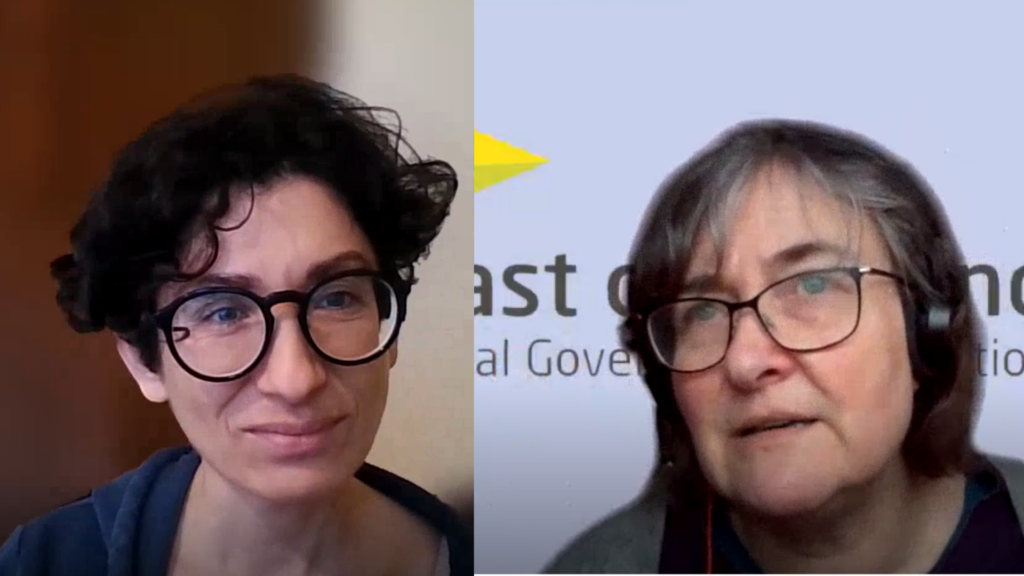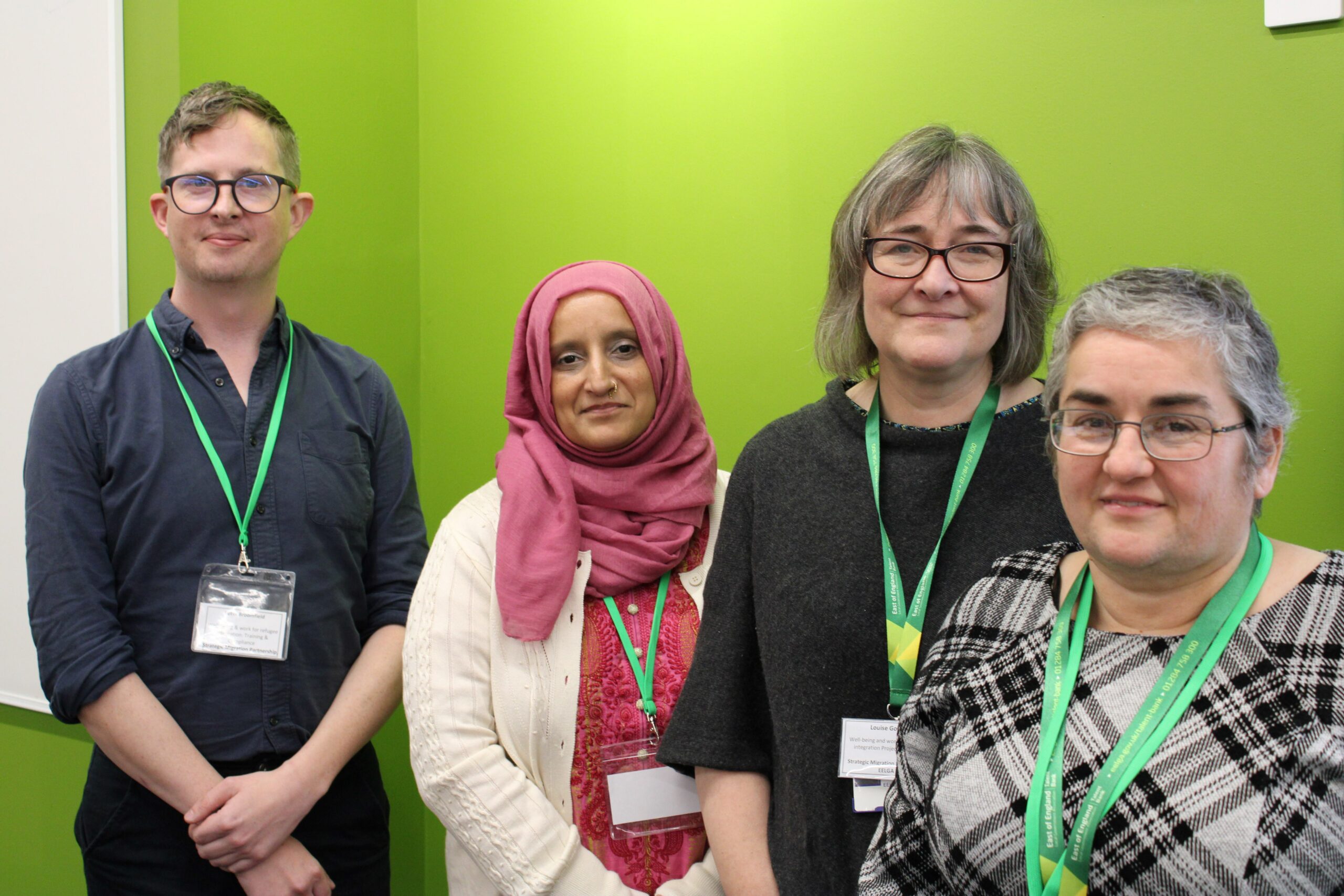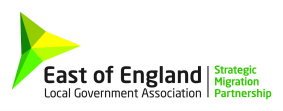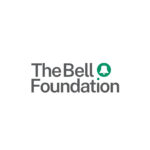In conversation | How to get refugees closer to the workplace
In this blog, we explore lessons from the programme run by the East of England Local Government Association’s Strategic Migration Partnership (EELGA SMP) to support refugees and asylum seekers with employment opportunities.
Back in 2018, resettled refugees in the East of England were keen learners of English for Speakers of Other Languages (ESOL) but only 4% of them were able to find jobs. Fast forward to today, and the East of England Local Government Association’s Strategic Migration Partnership (EELGA SMP) now have a better understanding of the barriers to employment for refugees in the area, and have supported more than 1700 refugees and asylum seekers with therapy, ESOL classes and skills programmes.
We sat down with Louise Gooch, Project Manager at EELGA SMP to chat about their learning along the way.

Focusing on some of the ESOL-lessons learned and good practice developed, are there any that are easier to implement that you would recommend to other organisations in the sector?
Initially, our objective for the project was to provide people with sector specific employment-related skills, using ESOL as a vehicle to develop their skills to access particular jobs in the UK job market. It turned out that the more generic skills courses were far more popular and that if you were preparing somebody for a particular workplace, chances are they had enough English to get into that workplace already. Whereas if you're helping somebody pass their driving theory test, you are opening up the job market to them in a very different way.
If I had a magic wand, I would ask that every ESOL provider has the same ESOL assessment tool. If you've got the same assessment tool, it is far easier to identify where the needs are and what you need to do to fill the gaps in provision.
If I had a magic wand, I would ask that every ESOL provider has the same ESOL assessment tool. If you've got the same assessment tool, it is far easier to identify where the needs are and what you need to do to fill the gaps in provision.
Another suggestion would be the ESOL summer school which were oversubscribed for two years in a row. It was complicated to organise, so it's not a quick win by any means, but colleges stop during the summer, so anybody who's got Adult Education Budget (AEB)*-funded ESOL classes will have a period of between six and eight weeks where they're not accessing ESOL at all. It provides continuity on the language learning during the summer months so that when they do then pick up their AEB-funded ESOL college classes in the autumn, they've managed to remain at the level that they were at when they finished the summer term.
Were there any specific challenges in the project and how did you mitigate these?
Our project started during COVID, so we had to move our ESOL provision online. That, of course, came with challenges because people don't necessarily have access to the same kind of IT device. Everybody who needed it received an IT kit so they could access their ESOL classes remotely.
When we first thought about our ESOL classes, we thought we would do intensive ESOL with many hours compressed into very few weeks. However, online learning does not lend itself well to that kind of approach and we decided instead to create a suite of ESOL materials that are designed to help people. The priority was to support them accessing the job market. Secondly, to help them with their integration pathway, we did courses on, for example, how to access the NHS. It's only a small curriculum, ten hours, but it's about how you get childhood inoculations, what to expect from maternity services, etc.
By offering short courses, we gave people the opportunity to enhance learning by getting additional exposure to English as a complement to their AEB-funded classes. The learners also got the opportunity to progress and learn, which helped with their employment pathway.
Reflecting on the partnership, what do you consider to be its lasting impact or legacy?
Before this project, the need for a refugee-specific employment advisor was unrecognised, with the assumption that refugees could seamlessly integrate into the DWP Job Centre Plus system. We've demonstrated that dedicated refugee employment advisors are essential, as refugees face unique barriers to accessing the UK job market. The insight from the project has informed our Employability for Overseas Nationals project, recognising that many challenges refugees face are shared by other overseas arrivals. The DWP system often struggles to effectively place individuals with foreign qualifications and experience, highlighting the need for specialised support. The Government's Refugee Employability Programme acknowledges this gap, emphasising the importance of utilising the skills and expertise of overseas nationals. A diverse workforce benefits employers, and every region in the UK should implement refugee employability projects to fully leverage the talents of overseas nationals and remove barriers to appropriate employment.

Can you talk more about the impact of language support in the project and why it’s important in helping people enter employment?
Our project was not necessarily about getting people into work but getting people closer to the workplace, particularly for people who didn't feel that they had a part to play in the job market. One of the areas where I think we were most effective, was through our ESOL for Childcare course which was particularly popular with women who hadn't worked before. Some of them will use their learning as a springboard to go into work, volunteering or to have a better understanding about the UK education system for their own children.
I think our measure of success was that we've now got people who are really committed to their children's education, and they understand what their children are going through, are good advocates for them and are supporting their learning at home.
We have a culture in this country of underusing the skills and expertise that has been learnt overseas. It's not just about making sure that people have got good skills and can find work that is appropriate to those skills. It's also employers recognising that a diverse workforce, with different tastes and different experiences working, has a positive impact in the business.
We have a culture in this country of underusing the skills and expertise that has been learnt overseas. It's not just about making sure that people have got good skills and can find work that is appropriate to those skills. It's also employers recognising that a diverse workforce, with different tastes and different experiences working, has a positive impact in the business.
You have shared that part of your learning in this project is that it’s critical to address underlying mental health needs that refugees have before embarking on language acquisition and a job hunt. Can you tell us about why you think this is important and how you approached this in the project?
We understood the need for mental health support and that it runs in tandem with the employability work. It’s important to help people understand that what they're feeling is entirely normal and natural, given the experience that they've been through. It's about how you develop coping strategies so that you can build enough confidence to overcome those challenges and find yourself in work.
Where people were willing to accept some help and to learn how to look after their mental well-being, we started to see better outcomes and fewer people approaching the job market and then retreating from it.
The ESOL provision, linked with the therapists, offered opportunities for people to improve their speaking and listening skills. At the same time, it helps to reduce their feelings of isolation and loneliness.
The ESOL classes then became an opportunity for them to meet other people who are in a similar position. The ESOL provision, linked with the therapists, offered opportunities for people to improve their speaking and listening skills. At the same time, it helps to reduce their feelings of isolation and loneliness. Having regular contact with the wider community, speaking the language, and learning from other people will have a positive impact on their mental health.
*The AEB is now part of the Adult Skills Fund.
About this partner

We have learnt that it is important to help refugees compress the time it takes them to find sustainable and secure work.EELGA SMP's Wellbeing & Work for Refugee Integration project
